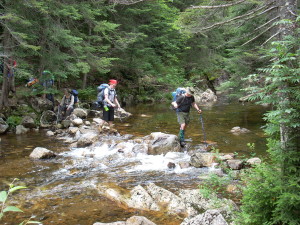The exercise of good judgment by an adult leader in a youth-based outdoor activity is a crucial aspect of risk management. Indeed, it is the foundation of BSA safety in the outdoors. In the end, exercising good judgment may be the only factor protecting participants from a bad outcome.
Factors that can inhibit good decision-making include:
- carelessness,
- complacency,
- denial,
- improper assumptions,
- effects of fatigue,
- stress-affected behavior,
- resistance to changing conditions,
- lack of experience or knowledge,
- overconfidence,
- lack of respect for risks or hazards,
- poor conflict resolution,
- ineffective leadership,
- bad participant behavior,
- lack of understanding of participant skill level,
- summit fever,
- tunnel vision,
- hazard unawareness,
- time or schedule pressures,
- leader ego, and
- unreasonable goals.
In the absence of the exercise of good judgment, Scouts can be placed in a position of vulnerability during the activity from which there may be no recovery, with tragedy being the only possible outcome.
Good judgment in the outdoors is an integral part of the risk management process and can be enhanced both by training and experience, taking particular note of the prior outdoor experience of other leaders in the unit.
Lastly, in the unfortunate event of a serious injury (or worse) to a Scout during an activity due to the failure of an adult leader to exercise good judgment, there may be an emotional cost to be paid by the participating adult leader(s), as well as the other Scouts.
This is just a reminder that an unfortunate incident may have a number of victims, youth and adult leaders alike, both physical and emotional, with lasting consequences.
But, what about the youth in the group? Are they able to exercise good judgment? As parents recognize, the answer is complicated. The young brain’s “judgment center” does not fully mature until the mid 20’s, and prior to then, the thrill-seeking part of the brain will predominate, overriding the rational or decision-making part of the brain during their earliest Scouting years. Hence, the favorite youth answer “I don’t know” to the question “Why did you do that?”. All adults have experienced this as youth, and adult leaders should not assume that their sense of good judgment will correspond in kind to the sense of good judgment able to be exercised by Scouts.
BSA’s new (2015) Scouter Code of Conduct makes it a personal obligation for an adult leader “to demonstrate sound judgment and demonstrate good leadership”. As discussed above, this may be easier said than done at times, given those factors that can operate against the exercise of good judgment. And, in the absence of experience and training, it may be an impossible task, as discussed in a related blog.
But, it should be the goal of every adult leader to meet that obligation!

